Australian doctor Richard Scolyer shares update after cancer win
Richard Scolyer is undergoing a never-before tested treatment after facing “certain death”. Now he’s shared his latest scan results.
Health
Don't miss out on the headlines from Health. Followed categories will be added to My News.
The Australian doctor who has been undergoing a first-of-its-kind treatment he helped develop after being told he faced “certain death” from a brain tumour has shared a huge health update.
Richard Scolyer, a professor at the University of Sydney, was diagnosed with a glioblastoma after suffering a seizure last June.
Survival rates vary considerably for different types of brain cancer, but glioblastomas – now defined as IDH-wildtype tumours – accounted for 65 per cent of all brain cancers in 2020 and had a five-year relative survival of only 5.9 per cent in 2016–2020, according to the most recent data published by the Australian Institude of Health and Welfare.
But the 56-year-old, who has been recognised for his pioneering melanoma research, put himself forward to undergo a world-first experimental treatment.
Professor Scolyer, who is documenting his journey on social media for the world to see, began the treatment late last year, and initially showed no sign of a cancer recurrence.
But he has just revealed a recent MRI scan “threw up a tiny new focus of enhancement” on his brain.
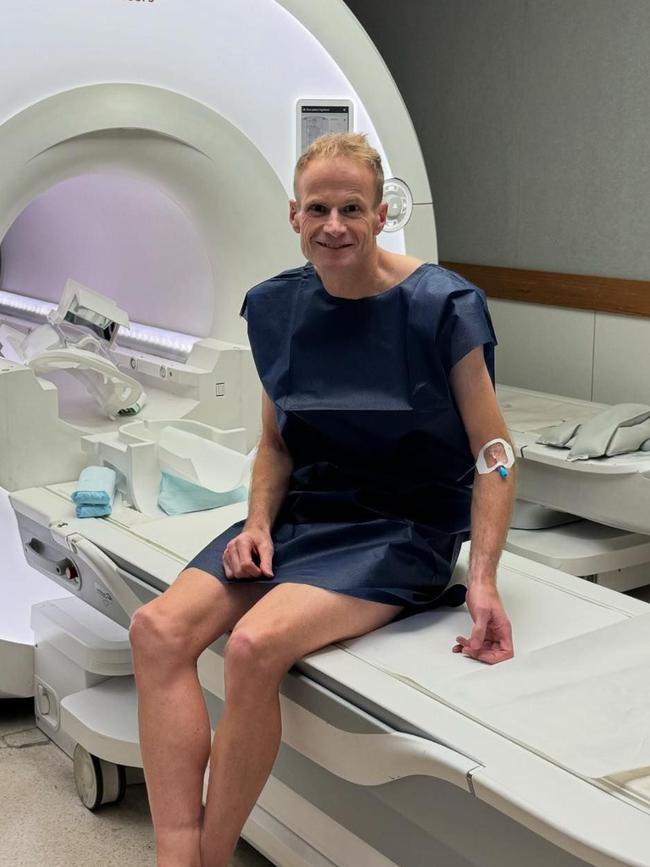
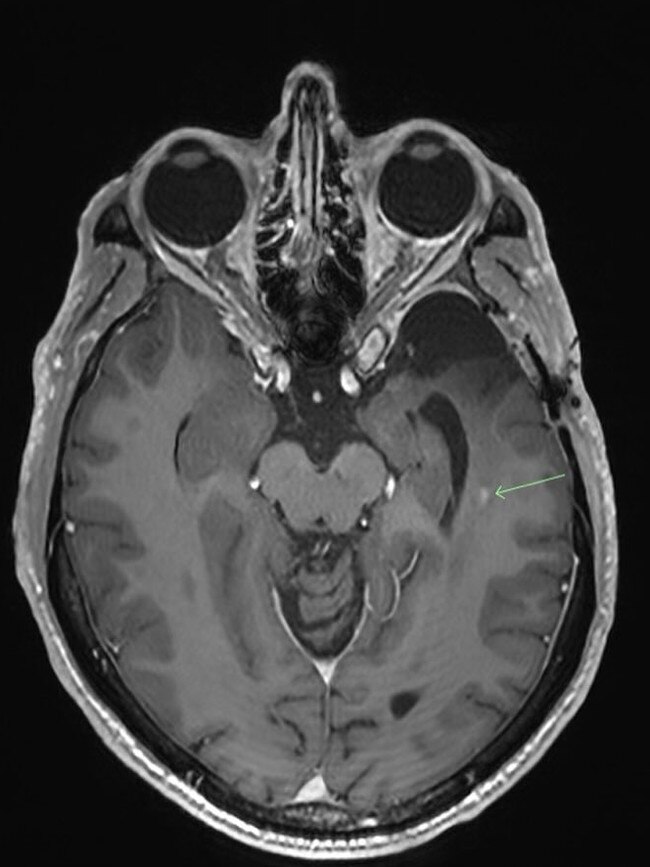
“Although the nature of this is uncertain, at this stage, experts feel it is more likely reflective of post #radiotherapy change rather than #glioblastoma recurrence,” he shared on Instagram.
“The plan is to have an early follow-up scan in 6-8 weeks time to monitor it & see if it changes.
“My cerebral artery #aneurysm (sac like out pouching) remains stable so all good on that front.”
Many followers shared Professor Scolyer’s positivity, leaving messages of encouragement on his post which also featured several snaps from his hospital – including the most recent brain scan.
“Keep up the good fight Professor Scolyer,” one said.
“We’re all behind you and inspired by you,” added another.
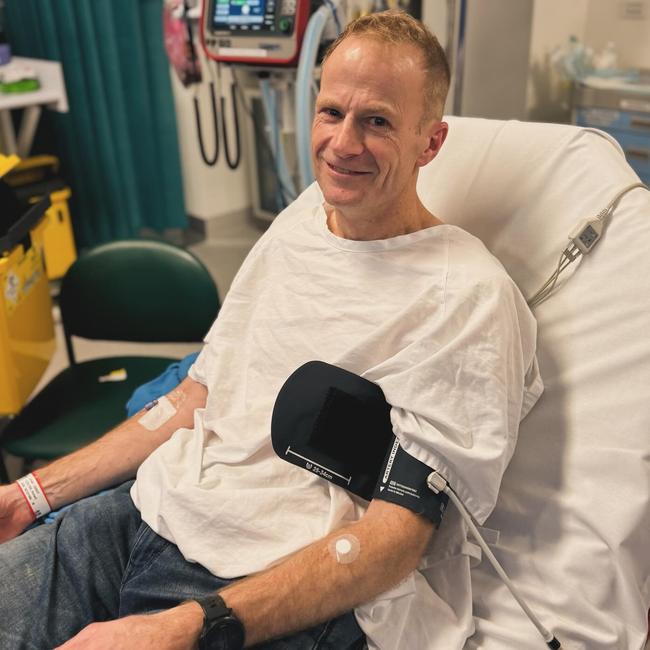
In May 2023, the professor was travelling through Europe while speaking at several medical conferences, when he suffered a seizure in Poland.
The day before, the ultra-fit Sydney father-of-three was hiking the mountains of southern Poland with his pathologist wife Katie.
“I felt normal. I didn’t have any symptoms at all,” he told A Current Affair earlier this year.
After flying back to Australia and undergoing tests, he was diagnosed with glioblastoma – an aggressive and terminal form of brain cancer that would give him a median of 14 months to live.
The treatment, which had not changed in 18 years, typically involves surgery followed by radiation and chemotherapy.
The news turned his life “upside down”.
“Not only is it tough on me but has had a massive impact and made life very difficult for those closest to me,” he shared on social media.
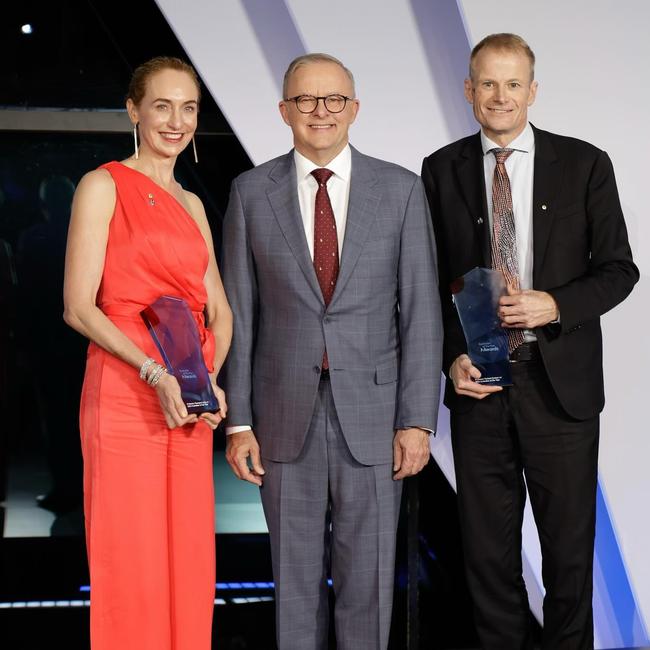
One of many to feel the grief was his friend and medical oncologist Georgina Long, who was jointly named the 2024 NSW Australian of the Year, alongside Professor Scolyer for their lifesaving melanoma work.
After consulting experts, Professor Long decided on combination immunotherapy, which would be delivered before and after surgery to remove the tumour.
He also received six weeks of radiotherapy after surgery and a personalised vaccine to combat the tumour.
“We’ve taken everything, absolutely every bit of knowledge … that we’ve pioneered in melanoma and we’ve thrown it at Richard’s tumour,” Professor Long told Australian Story.
But the world-first treatment came with a risk.
“No one knew what it was going to do, people were nervous because it could actually cause my life to end more quickly. But when you’re faced with certain death, it’s a no-brainer for me,” said Professor Scolyer, who also hoped the treatment would make a difference for other cancer patients.
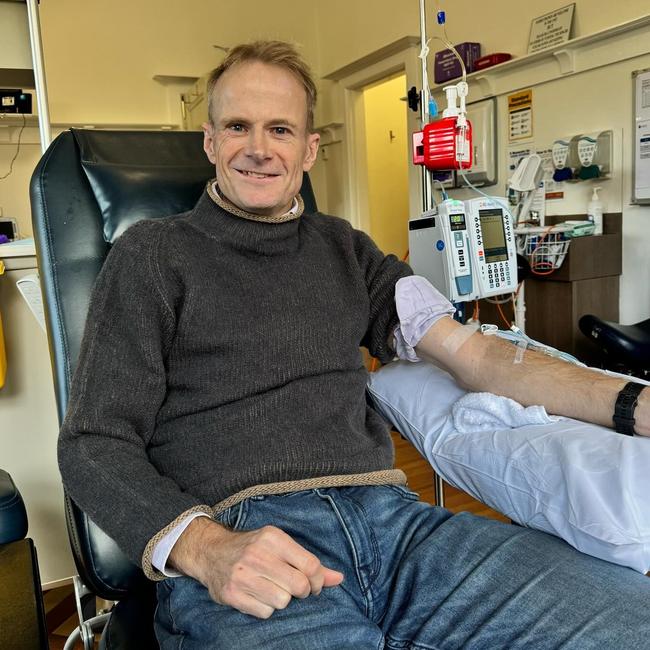
Early results from the treatment were positive, showing the number of immune cells had increased 10 fold, he said shortly after.
In May, he revealed his latest scan showed “that there is still no sign of recurrence”.
“I couldn’t be happier!!!!!” the professor shared on X, formerly known as Twitter.
Professor Scolyer said he was “blown away” by the treatment, which is hoped will lead to a clinical trial to be tested on a broader group of patients.
“This is not what I expected. The average time to recurrence for the nasty type of brain cancer I’ve got is six months. So, to be out this far is amazing,” he told Australian Story.
While the results are promising, Professor Scolyer said things haven’t been all smooth sailing.
During his treatment he has suffered a “few issues” including inflammation and swelling of the lining of the nasal cavity and an upper respiratory infection.
Originally published as Australian doctor Richard Scolyer shares update after cancer win





